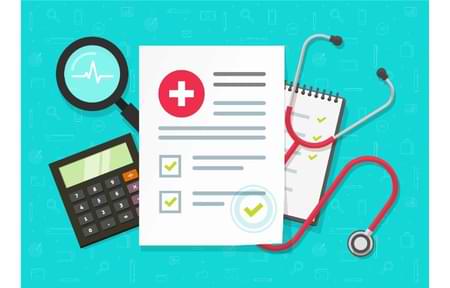How to Know If It Is a Migraine or a Headache
How to Know If It Is a Migraine or a Headache

Are you unsure whether your pounding headache is a migraine or another type of headache? Knowing the difference is key to getting the right treatment and managing the pain effectively.
By the end of this blog, you’ll clearly understand whether a migraine or headache of another type causes your pain.
Headache can be of many types, and it is one of the common symptoms of a migraine. Migraine is also associated with other side effects like nausea, fatigue and dizziness, unlike other headaches.
How to Know If It Is a Migraine or Headache?
Headaches are of three types: tension, sinus, and cluster. When you feel pain in your temples for some time, you may not know if it is due to a migraine or one of these headaches. How to identify the reason for your pain? Watch out for the pain’s location, intensity, and duration to determine the exact cause and treat it properly.
Here is a table giving you some important pointers for helping you identify the type of headache you experience:
| Pain Details | Migraine | Tension Headache | Sinus Headache | Cluster Headache |
|---|---|---|---|---|
| Location | It occurs mostly on one side and occasionally on both sides of the head | Mostly on one side or both sides of the head and neck | Pain is mostly on the forehead and the region between the eyes | Pain is only on the side and is mostly felt behind your eye |
| Duration | A minimum of 4 hours, but can go up to 72 hours | A minimum of 2 hours, but can go up to many days | It can go on for many days if you don't treat it on time | It mostly lasts between 30 to 90 minutes |
| Intensity | It starts as a mild pain, but the severity can increase considerably | The pain always remains in the mild to moderate range only | The pain begins mildly but suddenly shoots up in severity | The starting range of the pain is severe |
The treatment for these headaches are:
• Migraine – Over-the-counter medications like ibuprofen, aspirin and acetaminophen
• Tension headaches – Prescription medicines to treat the cause of tension (blood pressure, depression, seizures, etc.)
• Sinus headaches – Medicines to treat the congestion and other antibiotics
• Cluster headaches – Oxygen therapy and other related medications
Conclusion
Maintaining a healthy lifestyle, engaging in regular physical activity, and practising mental conditioning exercises can help manage headaches and migraines. A health insurance or critical illness insurance policy can provide financial support for medical consultations and preventive health checks, which may help identify underlying conditions that contribute to headaches and migraines.
Disclaimer: The above information is for illustrative purposes only. For more details, please refer to the policy wordings and prospectus before concluding the sales.
RELATED ARTICLES
Migraine Headaches: Everything You Need to Know
Know the Types, Symptoms, Risk Factors and Treatment of a Brain Tumour
How Much Does a Brain Surgery Cost in India?
What a caffeine overdose can do to your body and mind?
Explore HDFC ERGO’s Critical Illness Plans: Silver, Gold, Platinum










 Health Insurance
Health Insurance  Travel Insurance
Travel Insurance  Car Insurance
Car Insurance  Cyber Insurance
Cyber Insurance  Critical Illness Insurance
Critical Illness Insurance
 Pet Insurance
Pet Insurance
 Bike/Two Wheeler Insurance
Bike/Two Wheeler Insurance  Home Insurance
Home Insurance  Third Party Vehicle Ins.
Third Party Vehicle Ins.  Tractor Insurance
Tractor Insurance  Goods Carrying Vehicle Ins.
Goods Carrying Vehicle Ins.  Passenger Carrying Vehicle Ins.
Passenger Carrying Vehicle Ins.  Compulsory Personal Accident Insurance
Compulsory Personal Accident Insurance  Travel Insurance
Travel Insurance  Rural
Rural 











